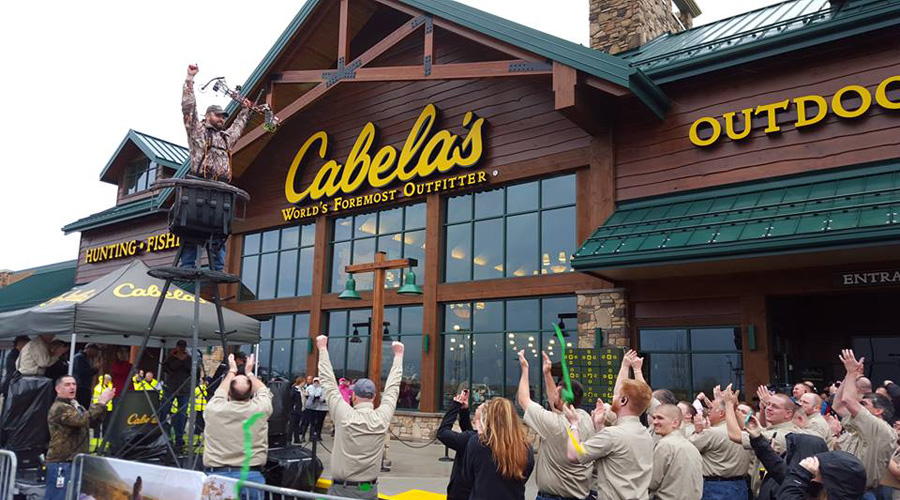In a regulatory on Wednesday, Cabela’s said the Federal Trade Commission informed the company on July 2 that it had closed its investigation of Bass Pro’s $5 billion buyout.
The filing does not indicate that the companies has to close stores in certain markets or make any other compromises, for the deal to gain approval.
The transaction, which is expected to close during the third quarter, remains contingent on the approval of Cabela’s shareholders. A special vote is scheduled for July 11. The transaction agreements were unanimously approved by Cabela’s board of directors.
The deal also remains contingent on the successful sale of Cabela’s financial unit, World’s Foremost Bank, to Synovus Financial (SNV), a bank based in Georgia, and Capital One Financial (COF). The deal was originally projected to close in the first half of 2017 but is being delayed to the third quarter due to antitrust hurdles facing the World’s Foremost Bank deal.
On April 17, Synovus agreed to acquire certain assets of Cabela’s financial division, World’s Foremost Bank, and then resell the credit card portfolio within the unit to Capital One Financial Corp.
At the time apparently due the Synovus arrangement, Cabela’s reduced to price of the deal to $61.50 per share, or about $5 billion, down from $65.50, or $5.5 billion when the deal was initially announced in October. In late afternoon trading on Wednesday, Cabela’s shares were trading up 24 cents to $59.69.
Antitrust regulators could have blocked the deal if they saw Bass Pro gaining too much clout in the marketplace with the merger. In 2015, the FTC blocked a deal that would have combined Staples and Office Depot, and they required Dollar Tree and Family Dollar to sell more than 300 stores before a merger could proceed. In late June of this year, Walgreens ended months of back and forth with regulators over its buyout of Rite Aid by scrapping the deal and agreeing to acquire about half the Rite Aid chain.
But antitrust concerns were seen as minimal. According to estimates provided by Cabela’s to the investment community, Cabela’s in 2015 controlled 4.3 percent of the $60 billion to $65 billion North American sporting goods market, with Bass Pro controlling 3.5 percent.
Walmart had the biggest share at 15.6 percent, while full-line sporting goods stores, such as Dick’s Sporting Goods and Academy Sports & Outdoors, controlled 8.6 percent, according to Cabela’s. Among its direct competitors in the hunt space, Gander Mountain controlled 2 percent, Sportsman’s Warehouse 1.2 percent and Scheels 0.7 percent.
The Bass Pro/Cabela’s combination could still close doors on its own but there’s little overlap. Bass Pro is strong in the southeastern U.S, where Cabela’s has few stores, while Cabela’s is most concentrated in northwest and Bass Pro has minimal presence. St. Louis, Omaha and Chattanooga, TE are a few markets where both Cabela’s and Bass Pro locations are in close proximity.
Cabala’s has also previously reported that it faces a handful of class-action lawsuits from groups of shareholders stemming from the merger.
The merger will create an outdoors gear chain with nearly 180 locations across the United States. Cabela’s has 82 locations in the US and Canada while Bas Pro Shops has 95.
Bass Pro Shops Founder and CEO Johnny Morris will continue as CEO and majority shareholder of the new entity, which will remain a private company with a continuing long-term view of supporting the industry and conservation.
Photo courtesy Cabela’s
















